How to keep your pets safe in the cold weather
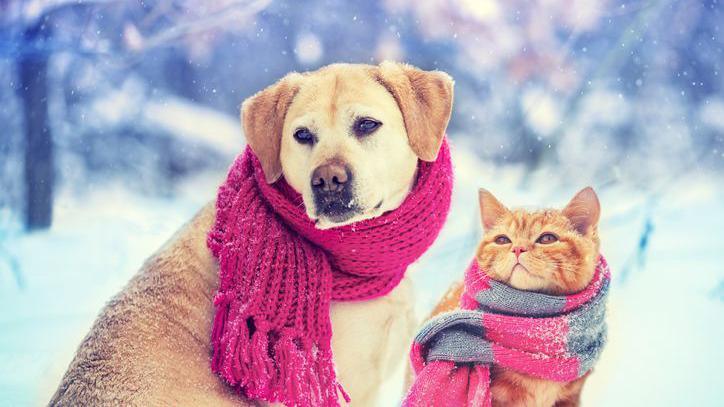
- Published
It's dark outside when you get up in the morning, and it's starting to get darker at the end of the school day too - yup, winter is definitely here!
While you might love the winter season, it's important to keep warm too.
And, when it starts getting chilly, it's important to make sure that your pets are also safe and sound.
Here are some tips for looking after them when the temperature drops.
More like this
What is hibernation, and which animals are getting ready now?
- Published19 November 2024
Small dogs are often smarter than big dogs, says new research
- Published14 November 2024
FIVE cool facts for the cold weather
- Published18 January 2024
Dogs
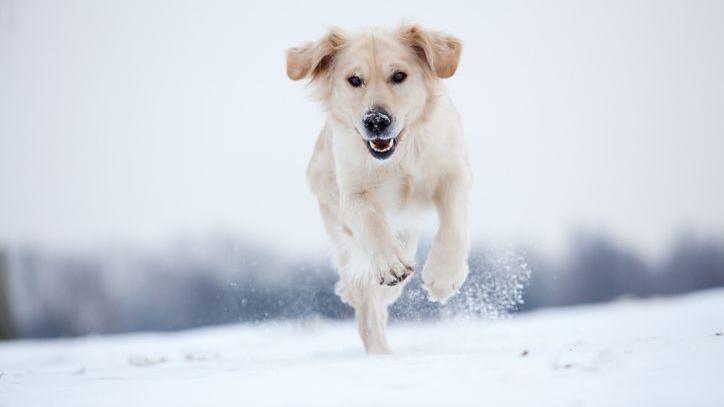
Dogs still need walks during cold weather. Usually, their fur will keep them pretty warm.
But some dogs might need extra help staying cosy on their walkies.
Short haired or elderly dogs can get too cold when they're out in winter. Dogs like greyhounds or chihuahuas don't have a thick enough coat to protect them from the harsh weather, so they might need special dog jumpers or waterproof coats.
Don't forget to wear warm, reflective clothes while you're out walking your dog. They get cold in the snow, but so do you!
Animal charity, the RSPCA, also says it is a good idea to think about a reflective collar or light on your dog's collar for dark, winter walks.
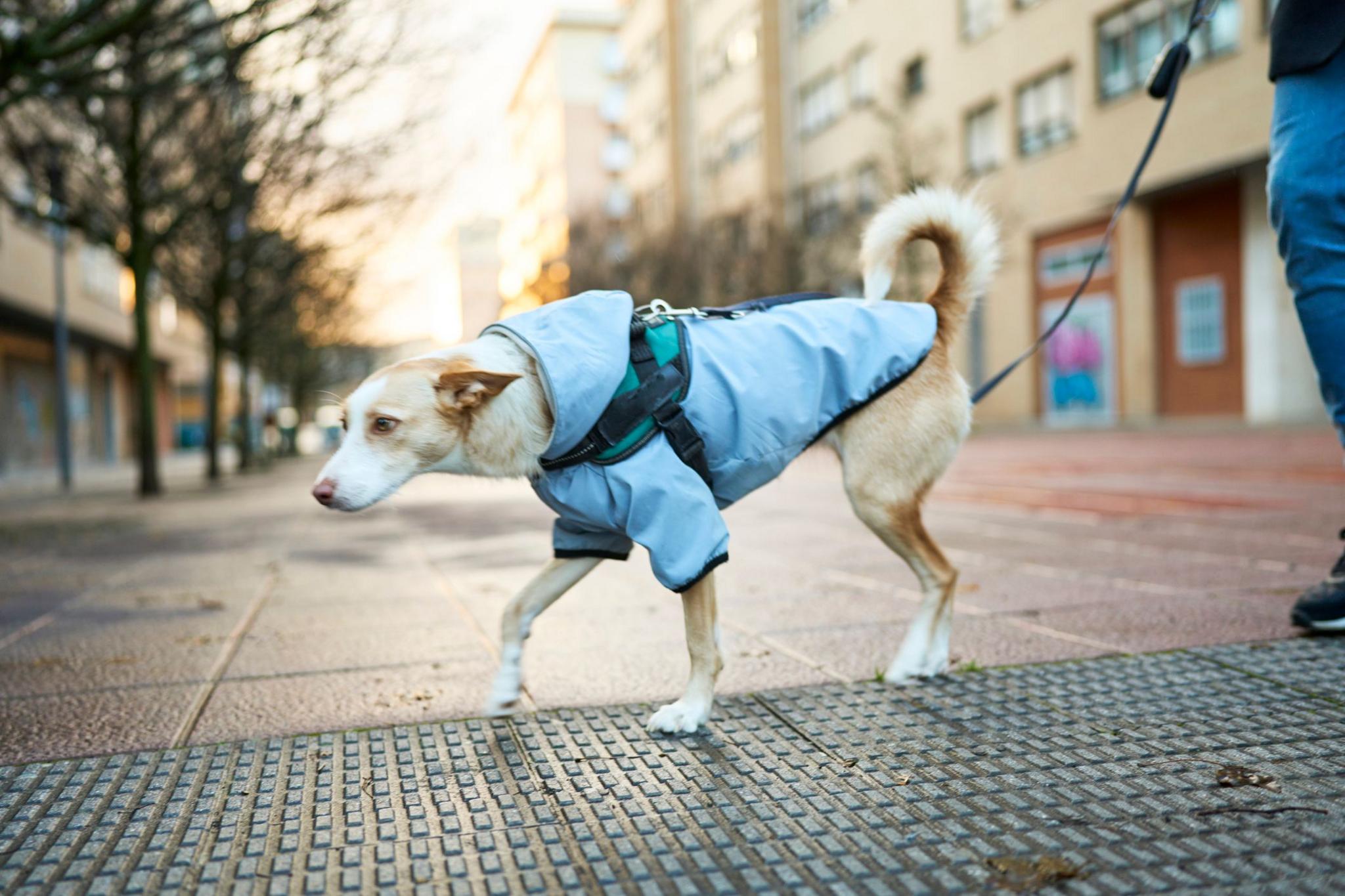
If your dog is chilly it might need a coat to keep warm
While out walking, watch how they're walking. If they look like they're struggling, their paws might be too cold, or could have got too much snow in them.
When you get home, give the dog's paws a wash, because things like salt, used to stop roads getting icy, can be bad for their skin.
Keep dogs away from water - cold weather can make ponds and lakes turn to ice, which would be very dangerous for your dog to run or walk on. If your dog does find its way onto some ice, do not follow it. Instead, get the attention of your grown up.
If your dog is spending more time indoors because of the cold weather, make sure that they're getting lots of indoor exercise and attention! Play some stimulating games with them to tire them out a little, and keep them from being bored.
If for any reason your dog is getting less exercise over the coldest months, speak to your grown up and your vet to see if their diet should be changed.
According to the RSPCA, with lots of food and not enough exercise, dogs can get overweight, which is bad for their health.
Cats
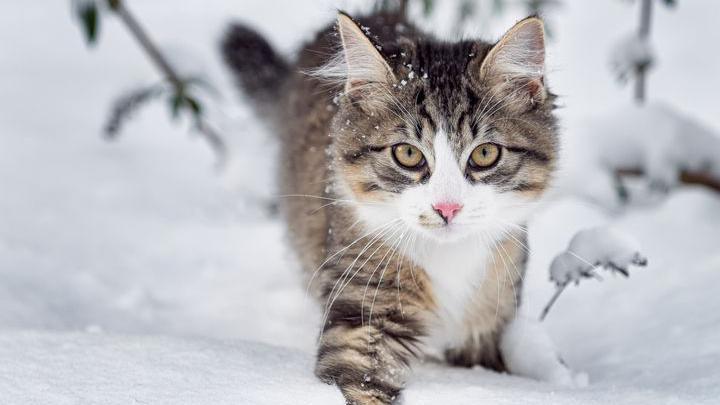
Cats usually love nothing more than snuggling up somewhere warm, so make sure that their beds are away from draughty windows and doors.
During the day, cats should be given the choice to go out, if they're used to going outside, but ideally they should stay inside overnight during cold weather.
Pet cats aren't used to extreme temperatures, and they can easily get too cold.
If your cat is outside when it's chilly, they might try to find somewhere warm nearby, which might not be the safest place for them.
The RSPCA also say to make sure your kitty is microchipped so that if they do end up going somewhere unexpected to warm up, they can be traced back to you.
Rabbits and guinea pigs
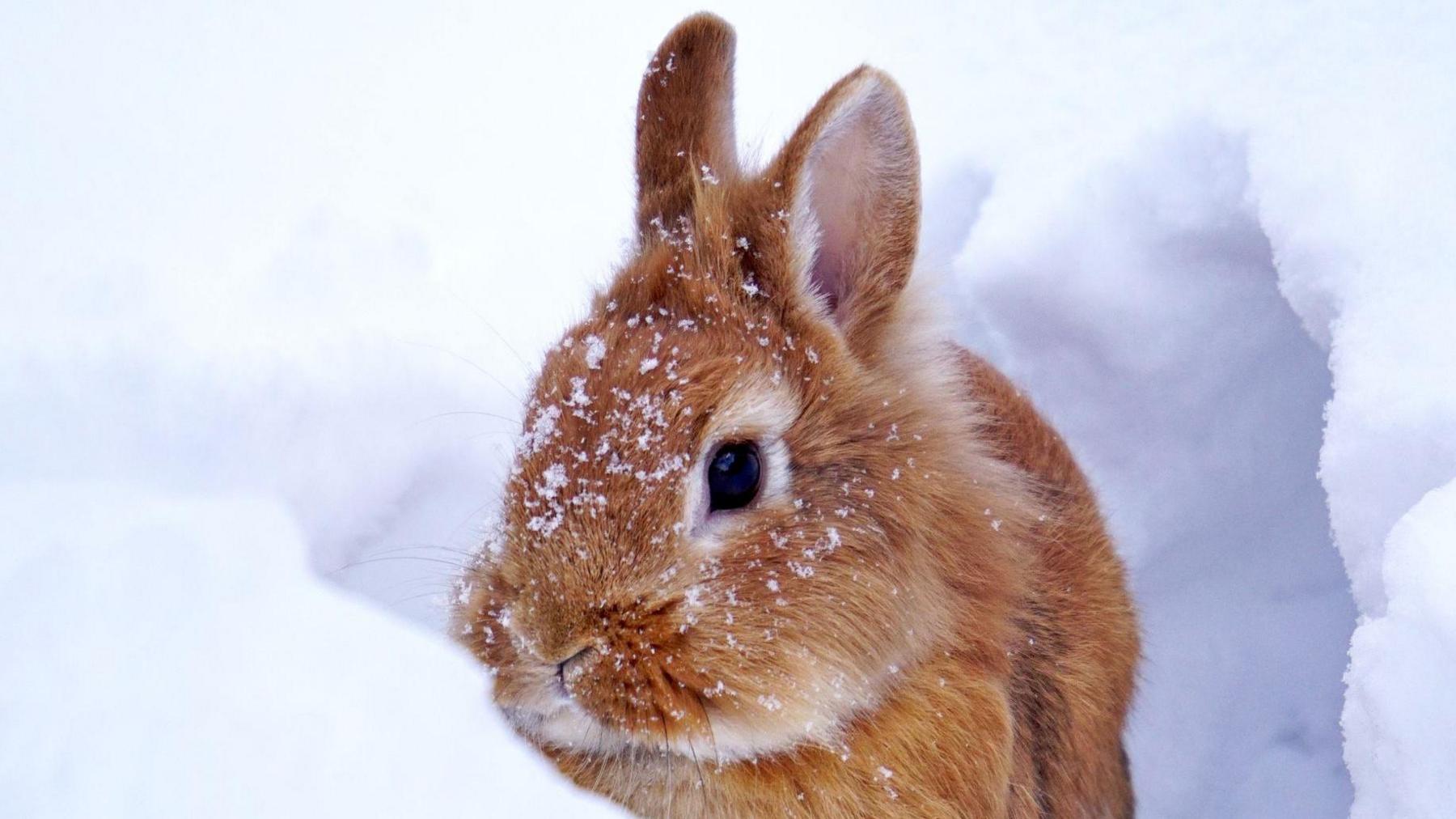
A lot of people keep their rabbits and guinea pigs outside, but smaller pets can feel the cold too.
If that's you, make sure that they have lots of extra bedding to keep them warm, and ensure that their home is as sheltered as possible.
The RSPCA suggest facing their hutch away from any wind, rain, and snow, and cover it with blankets and covers, but leave enough space to allow for good airflow.
If you have space to bring them inside over the colder months, brilliant!
Make sure that they have plenty of space to get exercise, and that they're kept away from things like wires that they can chew, as well as other pets that they're not used to.
